- Clone
- RPA-T4 (See other available formats)
- Regulatory Status
- RUO
- Workshop
- IV T114
- Other Names
- T4
- Isotype
- Mouse IgG1, κ
- Ave. Rating
- Submit a Review
- Product Citations
- publications
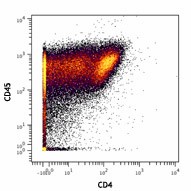
-

Human PBMCs stained with 154Sm-anti-CD45 (HI30) and 145Nd-anti-CD4 (RPA-T4).
| Cat # | Size | Price | Quantity Check Availability | Save | ||
|---|---|---|---|---|---|---|
| 300541 | 100 µg | 106 CHF | ||||
CD4, also known as T4, is a 55 kD single-chain type I transmembrane glycoprotein expressed on most thymocytes, a subset of T cells, and monocytes/macrophages. CD4, a member of the Ig superfamily, recognizes antigens associated with MHC class II molecules, and participates in cell-cell interactions, thymic differentiation, and signal transduction. CD4 acts as a primary receptor for HIV, binding to HIV gp120. CD4 has also been shown to interact with IL-16.
Product DetailsProduct Details
- Verified Reactivity
- Human
- Reported Reactivity
- Chimpanzee
- Antibody Type
- Monoclonal
- Host Species
- Mouse
- Formulation
- Phosphate-buffered solution, pH 7.2, containing 0.09% sodium azide and EDTA.
- Preparation
- The antibody was purified by affinity chromatography.
- Concentration
- 1.0 mg/ml
- Storage & Handling
- The antibody solution should be stored undiluted between 2°C and 8°C.
- Application
-
FC - Quality tested
CyTOF® - Verified
PG - Reported in the literature, not verified in house - Recommended Usage
-
This product is suitable for use with the Maxpar® Metal Labeling Kits. For metal labeling using Maxpar® Ready antibodies, proceed directly to the step to Partially Reduce the Antibody by adding 100 µl of Maxpar® Ready antibody to 100 µl of 4 mM TCEP-R in a 50 kDa filter and continue with the protocol. Always refer to the latest version of Maxpar® User Guide when conjugating Maxpar® Ready antibodies.
- Application Notes
-
The RPA-T4 antibody binds to the D1 domain of CD4 (CDR1 and CDR3 epitopes) and can block HIV gp120 binding and inhibit syncytia formation. Additional reported applications (for the relevant formats) include: immunohistochemistry of acetone-fixed frozen sections3,4,5, blocking of T cell activation1,2, and spatial biology (IBEX)10,11. This clone was tested in-house and does not work on formalin fixed paraffin-embedded (FFPE) tissue. The Ultra-LEAF™ purified antibody (Endotoxin < 0.01 EU/µg, Azide-Free, 0.2 µm filtered) is recommended for functional assays (Cat. No. 300569 - 300574).
- Additional Product Notes
-
Maxpar® is a registered trademark of Standard BioTools Inc.
-
Application References
(PubMed link indicates BioLegend citation) -
- Knapp W, et al. 1989. Leucocyte Typing IV. Oxford University Press. New York. (Activ)
- Moir S, et al. 1999. J. Virol. 73:7972. (Activ)
- Deng MC, et al. 1995. Circulation 91:1647. (IHC)
- Friedman T, et al. 1999. J. Immunol. 162:5256. (IHC)
- Mack CL, et al. 2004. Pediatr. Res. 56:79. (IHC)
- Lan RY, et al. 2006. Hepatology 43:729.
- Zenaro E, et al. 2009. J. Leukoc. Biol. 86:1393. (FC) PubMed
- Yoshino N, et al. 2000. Exp. Anim. (Tokyo) 49:97. (FC)
- Stoeckius M, et al. 2017. Nat. Methods. 14:865. (PG)
- Radtke AJ, et al. 2020. Proc Natl Acad Sci USA. 117:33455-33465. (SB) PubMed
- Radtke AJ, et al. 2022. Nat Protoc. 17:378-401. (SB) PubMed
- Product Citations
-
- RRID
-
AB_2562809 (BioLegend Cat. No. 300541)
Antigen Details
- Structure
- Ig superfamily, type I transmembrane glycoprotein, 55 kD
- Distribution
-
T cell subset, majority of thymocytes, monocytes/macrophages
- Function
- MHC class II co-receptor, lymphocyte adhesion, thymic differentiation, HIV receptor
- Ligand/Receptor
- MHC class II molecules, HIV gp120, IL-16
- Cell Type
- Dendritic cells, Macrophages, Monocytes, T cells, Thymocytes, Tregs
- Biology Area
- Immunology
- Molecular Family
- CD Molecules
- Antigen References
-
1. Center D, et al. 1996. Immunol. Today 17:476.
2. Gaubin M, et al. 1996. Eur. J. Clin. Chem. Clin. Biochem. 34:723. - Gene ID
- 920 View all products for this Gene ID
- UniProt
- View information about CD4 on UniProt.org
Related FAQs
- I am unable to see expression of T cell markers such as CD3 and CD4 post activation.
- TCR-CD3 complexes on the T-lymphocyte surface are rapidly downregulated upon activation with peptide-MHC complex, superantigen or cross-linking with anti-TCR or anti-CD3 antibodies. PMA/Ionomycin treatment has been shown to downregulate surface CD4 expression. Receptor downregulation is a common biological phenomenon and so make sure that your stimulation treatment is not causing it in your sample type.
- Can I obtain CyTOF data related to your Maxpar® Ready antibody clones?
-
We do not test our antibodies by mass cytometry or on a CyTOF machine in-house. The data displayed on our website is provided by Fluidigm®. Please contact Fluidigm® directly for additional data and further details.
- Can I use Maxpar® Ready format clones for flow cytometry staining?
-
We have not tested the Maxpar® Ready antibodies formulated in solution containing EDTA for flow cytometry staining. While it is likely that this will work in majority of the situations, it is best to use the non-EDTA formulated version of the same clone for flow cytometry testing. The presence of EDTA in some situations might negatively affect staining.
- I am having difficulty observing a signal after conjugating a metal tag to your Maxpar® antibody. Please help troubleshoot.
-
We only supply the antibody and not test that in house. Please contact Fluidigm® directly for troubleshooting advice: http://techsupport.fluidigm.com/
- Is there a difference between buffer formulations related to Maxpar® Ready and purified format antibodies?
-
The Maxpar® Ready format antibody clones are formulated in Phosphate-buffered solution, pH 7.2, containing 0.09% sodium azide and EDTA. The regular purified format clones are formulated in solution that does not contain any EDTA. Both formulations are however without any extra carrier proteins.
Other Formats
View All CD4 Reagents Request Custom ConjugationCustomers Also Purchased
Compare Data Across All Formats
This data display is provided for general comparisons between formats.
Your actual data may vary due to variations in samples, target cells, instruments and their settings, staining conditions, and other factors.
If you need assistance with selecting the best format contact our expert technical support team.
-
APC anti-human CD4
-
Biotin anti-human CD4
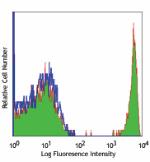
Human peripheral blood lymphocytes stained with biotinylated... -
FITC anti-human CD4
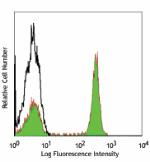
Human peripheral blood lymphocytes stained with RPA-T4 FITC 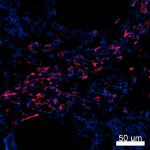
Confocal image of human lymph node sample acquired using the... -
PE anti-human CD4
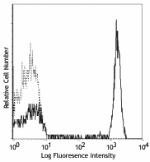
Human peripheral blood lymphocytes stained with RPA-T4 PE 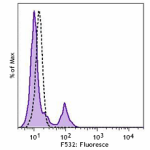
Human peripheral blood was stained with CD4 (clone RPA-T4) P... -
PE/Cyanine5 anti-human CD4
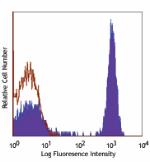
Human peripheral blood lymphocytes stained with RPA-T4 PE/Cy... -
PE/Cyanine7 anti-human CD4
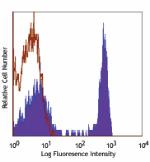
Human peripheral blood lymphocytes stained with RPA-T4 PE/Cy... -
Purified anti-human CD4
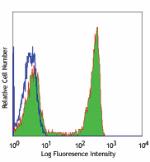
Human peripheral blood lymphocytes stained with purified RPA... -
APC/Cyanine7 anti-human CD4
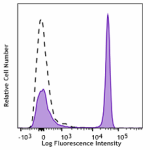
Human peripheral blood lymphocytes were stained with CD4 (cl... -
Alexa Fluor® 488 anti-human CD4
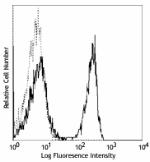
Human peripheral blood lymphocytes stained with RPA-T4 Alexa... 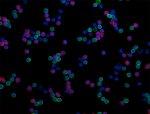
Human peripheral blood mononuclear cells were fixed with 2% ... 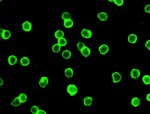
Human peripheral blood mononuclear cells were fixed with 1% ... -
Alexa Fluor® 647 anti-human CD4
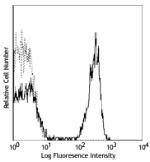
Human peripheral blood lymphocytes stained with RPA-T4 Alexa... 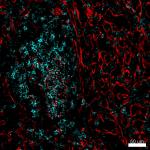
Confocal image of human spleen sample acquired using the IBE... 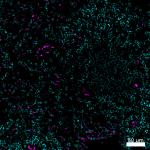
Confocal image of human lymph node sample acquired using the... -
Pacific Blue™ anti-human CD4

Human peripheral blood lymphocytes stained with RPA-T4 Pacif... -
Brilliant Violet 421™ anti-human CD4
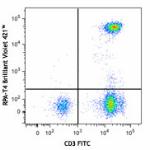
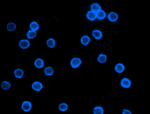
Human peripheral mononuclear cells were fixed with 1% Parafo... 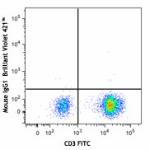
Human peripheral blood lymphocytes were stained with CD3 FIT... -
Alexa Fluor® 700 anti-human CD4
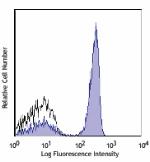
Human peripheral blood lymphocytes stained with RPA-T4 Alexa... 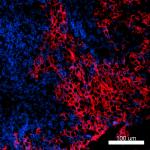
Confocal image of human metastatic lymph node sample acquire... -
PerCP anti-human CD4
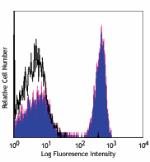
Human peripheral blood lymphocytes stained with RPA-T4 PerCP -
PerCP/Cyanine5.5 anti-human CD4
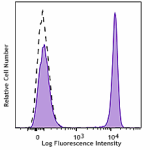
Human peripheral blood lymphocytes were stained with CD4 (cl... -
Brilliant Violet 570™ anti-human CD4
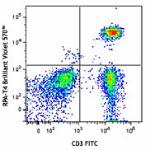
Human peripheral blood lymphocytes were stained with CD3 FIT... 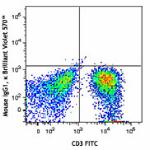
-
Brilliant Violet 650™ anti-human CD4
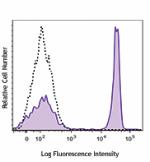
Human peripheral blood lymphocytes were stained with CD4 (cl... -
Purified anti-human CD4 (Maxpar® Ready)
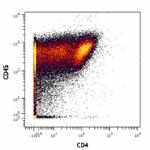
Human PBMCs stained with 154Sm-anti-CD45 (HI30) and 145Nd-an... -
Alexa Fluor® 594 anti-human CD4
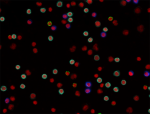
Human peripheral blood mononuclear cells were fixed with 2% ... 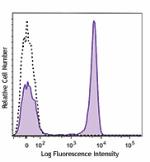
Human peripheral blood lymphocytes were stained with CD4 (cl... -
Brilliant Violet 510™ anti-human CD4
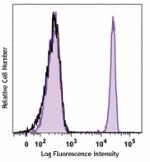
Human peripheral blood lymphocytes were stained with CD4 (cl... -
PE/Dazzle™ 594 anti-human CD4
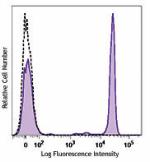
Human peripheral blood lymphocytes were stained with CD4 (cl... -
Brilliant Violet 785™ anti-human CD4
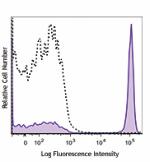
Human peripheral blood lymphocytes were stained with CD4 (cl... -
Brilliant Violet 605™ anti-human CD4
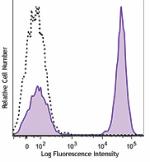
Human peripheral blood lymphocytes were stained with CD4 (cl... -
Brilliant Violet 711™ anti-human CD4
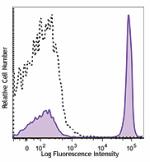
Human peripheral blood lymphocytes were stained with CD4 (cl... -
APC/Fire™ 750 anti-human CD4
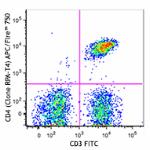
Human peripheral blood lymphocytes were stained with CD3 FIT... 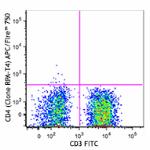
-
CD4 Fluorophore Sampler Kit
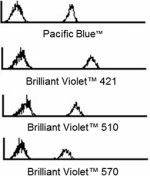
Veri-Cells™ PBMC were stained with anti-human CD4 (clone RPA... 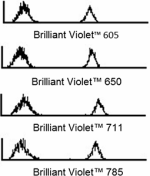
Veri-Cells™ PBMC were stained with anti-human CD4 (clone RPA... 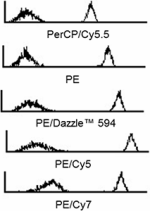
Veri-Cells™ PBMC were stained with anti-human CD4 (clone RPA... 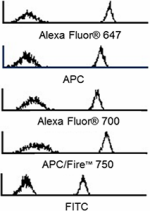
Veri-Cells™ PBMC were stained with anti-human CD4 (clone RPA... -
CD4 Fluorophore Sampler Kit with Veri-Cells™ PBMC

Veri-Cells™ PBMC were stained with anti-human CD4 (clone RPA... 
Veri-Cells™ PBMC were stained with anti-human CD4 (clone RPA... 
Veri-Cells™ PBMC were stained with anti-human CD4 (clone RPA... 
Veri-Cells™ PBMC were stained with anti-human CD4 (clone RPA... -
TotalSeq™-A0072 anti-human CD4
-
TotalSeq™-B0072 anti-human CD4
-
TotalSeq™-C0072 anti-human CD4
-
Ultra-LEAF™ Purified anti-human CD4
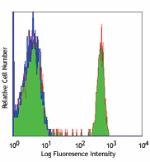
Human peripheral blood lymphocytes stained with LEAF™ purifi... -
TotalSeq™-D0072 anti-human CD4
 Login / Register
Login / Register 










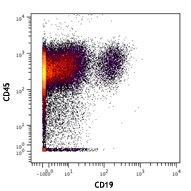
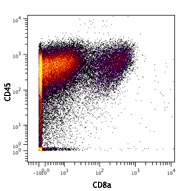

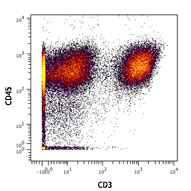



Follow Us